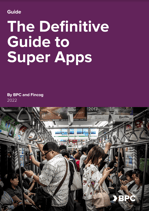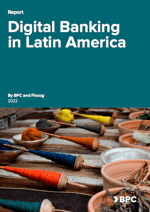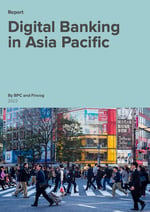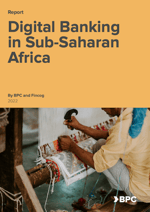The way consumers interact with banks in the Middle East is evolving rapidly. Today, customers expect a single platform that integrates financial services with their daily lives. This demand for simplicity and convenience has driven the rise of super apps.
By 2027, more than half of the global population will use multiple super apps (Source: Gartner). For banks, super apps are no longer optional, they are vital to staying relevant in this fast-changing market.
What are Super Apps?
Super apps are digital platforms that combine services such as banking, payments, e-commerce and transportation within one mobile app. Customers manage their activities in one place without the need to switch between different apps.
For banks, super apps provide continuous engagement and easy access to financial services embedded with everyday activities. These interactions help banks increase usage, improve customer loyalty and position themselves as an important part of their customers' daily lives.
Super Apps and Super Wallets as the Next Step
Banks in the Middle East have an opportunity to drive innovation. The region’s young, tech-savvy population and rapid smartphone adoption make it easier for super apps to thrive. By 2025, smartphone penetration in the GCC is expected to exceed 90% (Source: Statista). This high mobile connectivity is crucial for banks to digital services that meet evolving customer expectations.
Local Examples of Super Apps
Several companies in the Middle East are evolving into super apps, offering a wide range of services beyond their original scope. Careem, which began as a ride-hailing service, has now integrated food delivery, payments, and other services, making it a prominent super app in the region. Similarly, STC Pay, initially a digital wallet by the telecom giant in Saudi Arabia, has transformed into a comprehensive financial platform, serving over 4.5 million users as of 2020 with services like payments and transfers. Noon, originally an e-commerce leader, has also diversified its offerings by adding grocery delivery and other services, embedding itself further into consumers' daily lives. Other companies, such OMPay in Oman and Talabat in Kuwait, are also broadening their services to include payments, groceries, and quick-commerce solutions.
Consumers in the Middle East and Africa prefer mobile-first solutions. A McKinsey study shows that mobile apps are the preferred channel for financial services, especially in the UAE, Saudi Arabia and Egypt. This shift toward digital services presents a unique opportunity for banks to meet customer demands for convenience and accessibility through super apps.
Super apps allow banks to engage with their customers and become part of their everyday interactions. Whether customers are making payments, transferring money, or checking balances, these frequent interactions strengthen customer loyalty. Super apps also open new revenue streams, such as offering value-added services and personalized financial products tailored to the specific needs of each customer. In a competitive market, super apps drive engagement and enhance the customer experience.
In Africa, digitalization is rapidly advancing, with many organizations exploring super apps, e-wallets, and modern payment methods. For instance, Algerie Poste, focused on digital transformation, partnered with BPC to introduce a QR code-based payment solution. The system supports both static and dynamic QR codes, integrating with the national payment network and offering a mobile app for merchants and customers to enable instant payments.
BPC’s digital banking powered by SmartVista enables banks to easily integrate into a super apps environment to offer secure financial services. Banks can provide essential services like payments, transfers and account management within super apps, allowing customers to manage all their financial needs in one place.
The future of banking in the Middle East is digital and super apps are driving this transformation. Customers now expect all their services—banking, payments, shopping, and more—to be available in one convenient platform. Banks that integrate into these platforms will thrive by staying connected with their customers, offering personalized services and unlocking new revenue streams.




